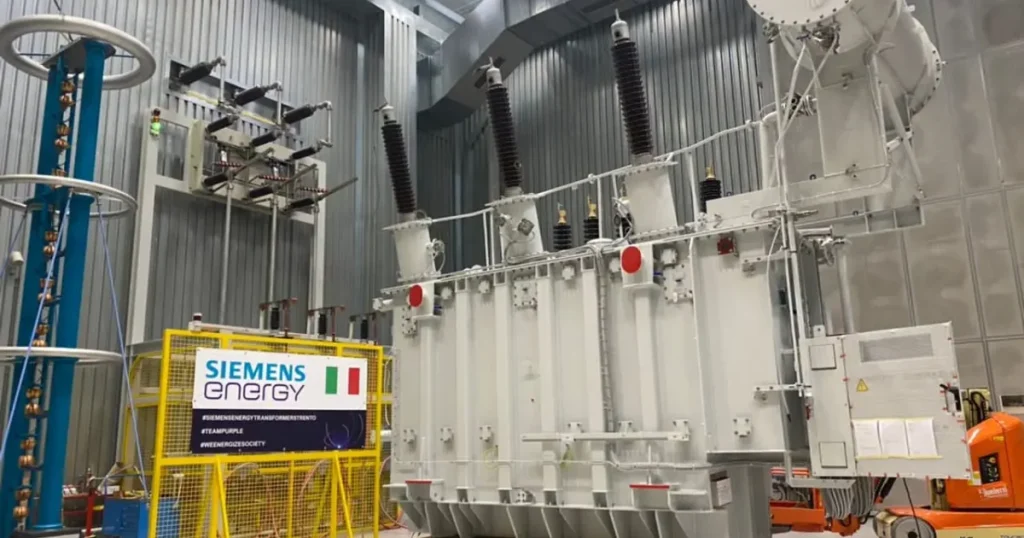The Nigerian government has embarked on a transformative journey to revitalize its ailing power sector through the Presidential Power Initiative (PPI), a collaborative effort with Siemens Energy aimed at significantly boosting the nation’s electricity transmission capacity. This ambitious undertaking is structured in phases, with Phase Two recently commencing, marking a crucial step towards achieving the ultimate goal of adding 12,000 megawatts (MW) to the national grid. This initiative stems from a bilateral agreement signed between Nigeria and Germany in late 2023, solidifying a partnership committed to resolving the persistent power challenges that have hampered Nigeria’s economic growth for years.
Phase Two of the PPI focuses on upgrading and expanding the existing transmission infrastructure. This involves the enhancement of seven existing power lines and the construction of ten new ones, spanning a total distance of 544 kilometers. These upgraded and new lines are designed to carry a combined capacity of 7,140 MW, a significant contribution towards the overall target of 12,000 MW. The completion of financing arrangements with Siemens Energy paved the way for the commencement of this crucial phase, signaling the project’s tangible progress. This phase builds upon the foundational work laid during the pilot phase, which saw the successful delivery and installation of critical equipment, including power transformers and mobile substations.
The pilot phase, a precursor to the larger-scale implementation of Phase Two, demonstrated the project’s viability and potential impact. This initial phase involved the delivery and installation of ten power transformers and ten mobile substations, strategically positioned across the country to address critical weaknesses in the transmission network and mitigate system collapses. These deployments have already begun to yield positive results, with installations nearing completion and contributing over 1,300 MW to the national grid. The strategic placement of these assets at key locations across the country is aimed at reinforcing vulnerable points in the grid, thereby enhancing stability and reliability.
The financing of Phase Two involves a combination of international funding secured through Siemens and counterpart funding from the Nigerian government. This collaborative financing model underscores the shared commitment of both nations to the project’s success. While the exact figures for Nigeria’s contribution are yet to be disclosed, the commitment to domestic funding reinforces the government’s ownership and dedication to the project’s long-term sustainability. The emphasis on not just capacity expansion but also on improving the reliability and accessibility of electricity for Nigerian households and businesses highlights the project’s broader socio-economic impact.
The genesis of the PPI dates back to 2018 during the previous administration, culminating in the formal agreement signed in December 2023 during the COP28 summit in Dubai. This high-level agreement, witnessed by President Bola Tinubu of Nigeria and German Chancellor Olaf Scholz, signifies the importance both countries attach to the project. The agreement was officially signed by the Managing Director of the Federal Government of Nigeria Power Company and the Managing Director (Africa) of Siemens AG, solidifying the partnership between the two entities. Furthermore, the Bureau of Public Procurement (BPP) played a crucial role in ensuring cost-effectiveness, negotiating significant savings during the procurement process, demonstrating the government’s commitment to fiscal responsibility.
The PPI is a multi-phase undertaking with the first phase focusing on the upgrade and expansion of existing substations. The Federal Executive Council approved significant funding for Phase One, which encompasses the engineering, procurement, construction, and financing of 330/132 KV and 132/33 KV substations in various locations across the country. This phase involves upgrading 14 existing (brownfield) substations and constructing 21 new (greenfield) substations, further strengthening the transmission network and laying the groundwork for subsequent phases of the project. The completion of Phase One will significantly enhance the transmission segment of the power sector value chain, creating a more robust and reliable electricity supply for the nation. This phased approach allows for systematic improvements and ensures that the overall project remains on track to achieve its ambitious goals.














